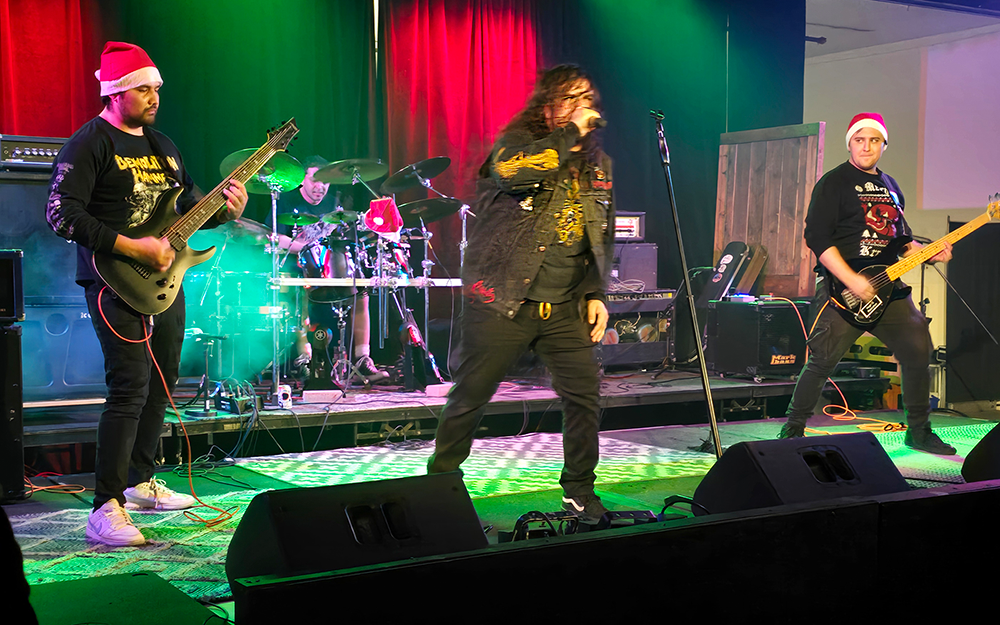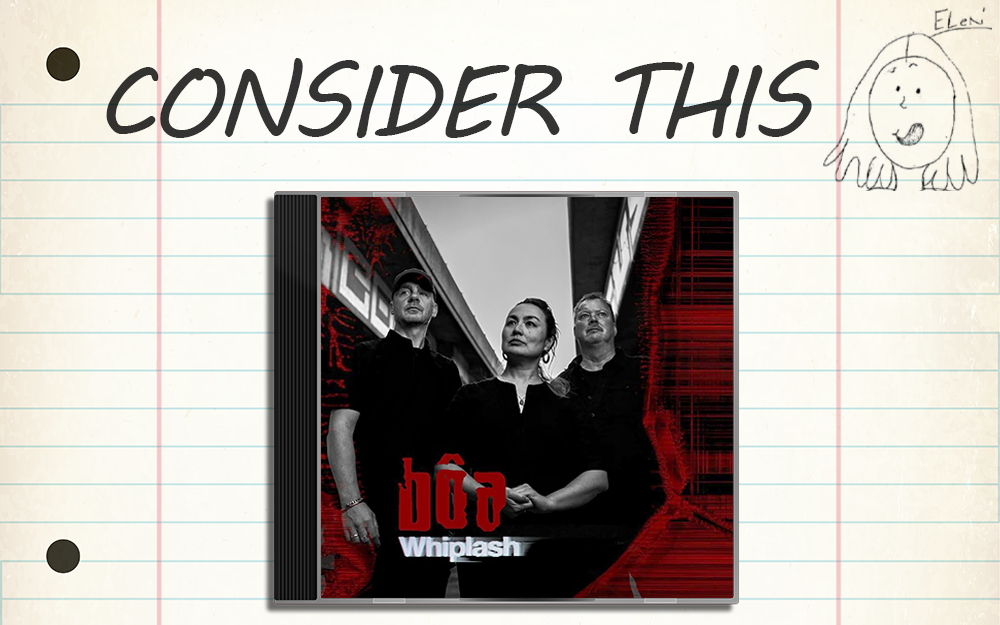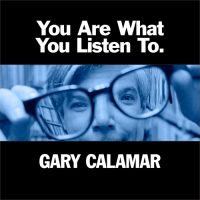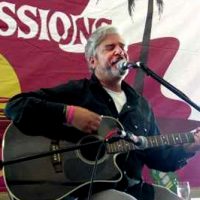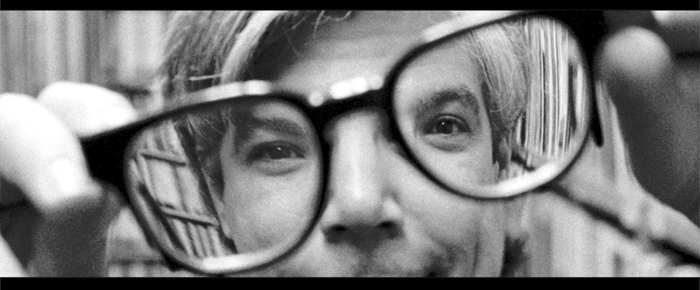
By Eleni P. Austin
Gary Calamar has always been passionate about music. Growing up in New York, he was the kid who hid his transistor radio under the covers. He was the teen who would visit his local record store every day after school, checking out the latest additions and breathing in the rarified atmosphere.
By the early ‘80s, Calamar had relocated to Los Angeles and began working in record stores; first at the respected Licorice Pizza chain and later managing the iconic Rhino Records in Westwood and then Moby Disc in Santa Monica.
Calamar soaked up the vibrant and disparate L.A. music scene. He even began managing local favorites, The Balancing Act. The quirky quartet released an EP and two full-length records that were critically acclaimed, but woefully unappreciated by the masses. Around this time he also started playing his own songs around town. Gigging in small clubs, accompanying himself on acoustic guitar, he developed a devoted following.
In the early ‘90s, Calamar began volunteering for venerable public radio station, KCRW. The station started broadcasting from Santa Monica College in 1945. By 1969, it became Los Angeles’ first NPR affiliate.
Through the years it has offered a wide variety of cultural, talk and news programs. It is probably best known as L.A.’s premier taste-making station. Breaking musical acts like Beck, Coldplay and Norah Jones. “Sopranos” creator David Chase was listening to KCRW when he heard Alabama 3’s “Woke Up This Morning,” he immediately knew he had found his show’s theme song.
A couple of years after Calamar began volunteering, a time slot opened up for a show that aired overnight between Saturday and Sunday. After begging for the spot, the station acquiesced. “The Open Road With Gary Calamar” featured a rich mix of musical genres. He also honed his interview skills, inviting luminaries like Brian Wilson and Warren Zevon to his show for in-depth conversations. As the years progressed, the show moved to a more coveted time slot, Sundays from 6pm to 8pm.
In 1998, Calamar hooked up with G. Marq Roswell as music supervisors for the film “Slums Of Beverly Hills.” They quickly followed up with “Varsity Blues.” Soon after he partnered with Thomas Golubic’ to supervise the music for HBO’s “Six Feet Under” series.
The team matched songs like Joni Mitchell’s “Woodstock,” the Blasters’ “So Long Baby Goodbye” and k.d. lang and Jane Siberry’s beatific “Calling All Angels” to score pivotal moments for the Fisher family. The final minutes of the season finale featured Sia’s “Breathe,” it was the perfect synthesis of music and film.
Working solo, Calamar went on to supervise shows like “Weeds,” “Entourage,” “Dexter” and “True Blood.” He also somehow found time to co-write a book with Phil Gallo. “Record Store Days: From Vinyl To Digital And Back Again” was a loving encomium to the independent record stores that have mostly become extinct.
When Iggy Pop expressed interest in appearing on a “True Blood” soundtrack, Calamar took a chance and sent him one of his own compositions. “Let’s Boot And Rally” was co-written with James Combs. Pop loved it and recorded it as a duet with Beth Cosentino of Best Coast. The sinewy Stooges front-man then encouraged Calamar to record his own music. Who can resist Iggy Pop?
So now the five time Grammy nominated producer has released his six song EP, You Are What You Listen To. The album opens with the insistent “I Got An Idea.” Co-written with Jeff Davis of the Balancing Act, the song dates back to the late ‘80s, but it’s aged like a fine wine.
Over a robotic rhythm and clangorous instrumentation that echoes early Devo, Calamar waxes enthusiastic over his latest brainstorm. He doesn’t really offer details, but he knows “it’s a design of the times, it’s very simple and completely streamlined/Read all about it in tomorrow’s headlines.”
Both “Giddy” and “She’s So Mid-Century” are frothy confections. The former is an effervescent ode to romance. Equal parts Sunshine and Power Pop, the tune is propelled by jangly guitars, (Sgt.) Pepper-y horns and lush “la-la-la’s.” The lyrics capture the dizzy sensations of new love. “Our love can be a threat to society, but we can get off on a minor technicality/I’m crazy for you so I’ll just plead insanity tonight.”
Over ringing guitars and a tumbling back beat the latter pays homage to a ‘50s fixated femme-fatale. “Well she purrs like Ann-Margret, she’s Grace Kelly cool/With her Virginia Slims cigarette, she’s breaking all the rules.”
Back in the early ‘70s, there was Schoolhouse Rock, Calamar re-jiggers the formula and brings us the Schoolhouse Blues on “Minimum Day.”
The track was co-written with his daughter, Zoe, who also provides put-upon pre-teen backing vocals. Stabbing keys and a soaring guitar provide a rock solid foundation for this paean to playing hooky. “I need a minimum day…I’ve been working too much/ I’m just an innocent kid, I should be treated as such.”
Each song here is pretty close to perfect, but the EP’s centerpiece is “The Last Revolution.” Calamar manages to be clever, smart-ass and wistful with each turn of phrase. Anchored by a bittersweet melody, it offers a pocket history of the decline of the vinyl LP. Not many songs can gracefully reference both Groucho Marx and William Shakespere, but Calamar manages to with aplomb, alluding to the “winter of my compact disc-content.” His melancholy is palpable.
“I had the Blues when I sold my Jazz and the soundtracks I heard all my life, I would’ve cried if I had no self-control/They gave me ten cents for my Billion Dollar Babies and flipped through my R&B, I know what it feels like to be selling my soul.”
The EP closes with the crunchy Garage Rock of “Back Door Man.” Growly guitars and stabbing organ fills pinball through the coruscated psychedelia. The puns come fast and furious. “You’re in or you’re out or you’re somewhere else in between/You say it’s a lock, but I know it’s only a screen.” He even takes time to name check himself! It’s a freewheeling finish to a very satisfying debut.
Gary Calamar was ably assisted in the making of this record. Along with Zoe Calamar, Nancy Gardos and Zoenda McIntosh provided backing vocals. Amy Woods manned the drums. Probyn Gregory tackles trumpet and trombone. Producer John Would plays guitar, bass keyboards and percussion and Willie Aron, (from the late, lamented Balancing Act) handles keyboards and vocals.
This EP is rich with sharp bon mots that recall pithy wordsmiths like Nick Lowe and Robyn Hitchcock. The melodies manage the neat trick of being fresh and familiar.
The only downside with You Are What You Listen To is that it’s too short! Calamar has given the listener a taste when what is required is a smorgasbord. Now that he has finally stepped into the spotlight, the time is right for a Gary Calamar box set.












